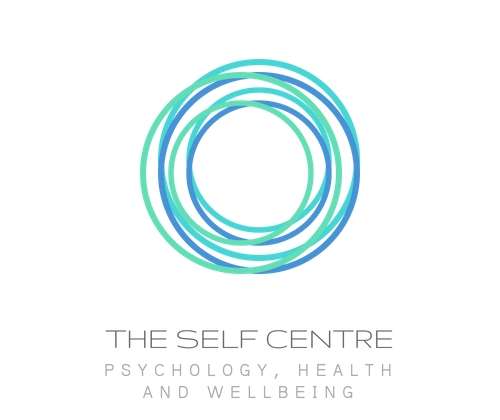
Understanding Stress: Breaking the Cycle for Better Mental Health
by Lyndsay Babcock
Principal Psychologist and Director of The Self Centre Psychology
Sarah is a 45-year-old woman juggling the demands of her career, caring for her ageing parents, and supporting her teenage children. Despite her best efforts, Sarah finds herself overwhelmed, time poor and absolutely running from responsibility to responsibility. She experiences frequent headaches, poor quality sleep, and a constant feeling of being on edge, not to mention, she never has time to herself to rest.
STRESS – we all deal with it in different ways, but understanding how to manage it can make a huge difference in our lives.
The Stress Cycle
Stress is our body’s natural reaction to challenges or threats. Think of it as your body’s alarm system going off when you’re faced with something tough. It all starts with a stressor—an event or situation that triggers a response. Your body then releases stress hormones like cortisol and adrenaline to prepare you to handle the challenge. You know, that “fight or flight” response.
Once the stressor is gone, our bodies should ideally chill out and return to a relaxed state. But in today’s fast-paced world, stressors seem to be everywhere. From work pressures to social media, it feels like we’re always “on.” This constant state of alertness can trap us in a cycle of chronic stress, where our bodies never fully recover. It’s like our alarm system gets stuck in the “on” position.
According to research from the American Psychological Association (APA), chronic stress can impair the body’s ability to regulate the inflammatory response, which plays a role in the development of diseases like cardiovascular disease, diabetes, and cancer.
Getting Stuck in the Stress Cycle
Chronic stress happens when we’re constantly exposed to stressors without enough time to relax and recharge. Here’s how we get stuck:
- Constant Exposure: We’re bombarded with stressors every day—work deadlines, financial worries, personal issues. It feels never-ending. A study by the Australian Psychological Society (APS) found that financial issues and health concerns are major stressors for Australians, with 64% of Australians reporting stress from finances and 60% from health concerns.
- Ineffective Coping: Sometimes we rely on quick fixes like junk food, alcohol, or binge-watching TV. While these might provide temporary relief, they often make things worse in the long run. The APS stress survey indicates that 52% of Australians use unhealthy eating habits and 29% use alcohol to cope with stress.
- Negative Thinking: Our minds can be our own worst enemies. Constant worrying and catastrophic thinking can keep us in a heightened state of stress. Cognitive-behavioural therapy (CBT) research highlights how changing negative thought patterns can significantly reduce stress levels.
- Physiological Changes: Chronic stress can mess with our bodies, making it harder to calm down. This can lead to sleep problems, weakened immunity, and more. Research shows that chronic stress can lead to alterations in brain structure and function, affecting areas involved in memory and emotional regulation.
Risks of Chronic Stress
Chronic stress isn’t just a mental burden—it can seriously affect our health. Here’s what prolonged stress can do:
- Mental Health: It can lead to anxiety, depression, and burnout. Studies show that people with high levels of chronic stress are more likely to develop anxiety disorders and depression.
- Physical Health: High blood pressure, heart disease, a weakened immune system, and digestive issues are all linked to chronic stress. The Heart Foundation of Australia notes that stress can contribute to behaviours and factors that increase heart disease risk, such as high blood pressure and cholesterol.
- Cognitive Function: Memory problems, trouble concentrating, and poor decision-making can all stem from too much stress. Research from Harvard Medical School indicates that chronic stress can shrink the brain, particularly in areas responsible for memory and learning.
- Behavioural Changes: Stress can lead to unhealthy habits like overeating, smoking, or substance abuse. The National Institute on Drug Abuse (NIDA) highlights how chronic stress increases vulnerability to addiction by altering the brain’s reward system.
In Australia, the numbers are telling. About 13% of Australians aged 16-85 experienced high or very high levels of psychological distress in 2020-2021. That’s a lot of people dealing with serious stress.
Indicators of Stress
How do you know if you’re stressed? Here are some common signs:
- Emotional: Irritability, mood swings, feeling overwhelmed, frequent sadness or anxiety.
- Physical: Headaches, muscle tension, fatigue, sleep disturbances, stomach problems.
- Cognitive: Difficulty concentrating, constant worrying, racing thoughts.
- Behavioural: Changes in appetite, procrastination, increased use of alcohol or drugs, social withdrawal.
Managing Stress Effectively
Now for the good stuff—how to manage stress! Here are some tried-and-true strategies:
- Exercise: Moving your body reduces stress hormones and boosts endorphins, the feel-good chemicals. The APS suggests that physical activity is one of the best ways to manage stress, with regular exercise significantly lowering stress levels.
- Mindfulness and Relaxation: Practices like meditation, deep breathing, and yoga can calm your mind and body. Research from the University of Massachusetts Medical School shows that mindfulness meditation can decrease symptoms of anxiety and depression.
- Healthy Lifestyle: Eat a balanced diet, get enough sleep, and limit caffeine and alcohol. The Sleep Health Foundation in Australia notes that good sleep hygiene can improve stress resilience.
- Social Support: Connect with friends, family, or support groups. Sharing what you’re going through can lighten the load. A study in the Journal of Health and Social Behaviour found that strong social support networks can mitigate the effects of stress.
- Time Management: Prioritise tasks, set realistic goals, and take regular breaks to avoid feeling overwhelmed. The APS recommends effective time management strategies to reduce stress and improve productivity.
- Professional Help: Sometimes you need a pro. A psychologist or counsellor can offer personalised strategies to manage stress. Cognitive-behavioural therapy (CBT) is particularly effective in treating stress and anxiety disorders.
Incorporating these strategies into your life can make a big difference. And remember, talking openly about stress helps to destigmatise it and encourages others to seek help when needed.
Understanding and managing stress is crucial for a happy, healthy life. By recognising the signs and using effective management techniques, we can break the stress cycle and thrive.
References
- American Psychological Association. (2018). Stress effects on the body. Retrieved from APA
- Australian Psychological Society. (2020). Stress and wellbeing in Australia survey. Retrieved from APS
- Beck, J. S. (2011). Cognitive Behavior Therapy: Basics and Beyond. New York: Guilford Press.
- McEwen, B. S. (2007). Physiology and neurobiology of stress and adaptation: Central role of the brain. Physiological Reviews, 87(3), 873-904.
- National Institute of Mental Health. (2017). Anxiety Disorders. Retrieved from NIMH
- Heart Foundation of Australia. (2021). Stress and heart disease. Retrieved from Heart Foundation
- Harvard Medical School. (2020). Stress management: Approaches for preventing and reducing stress. Retrieved from Harvard Health
- National Institute on Drug Abuse. (2018). Stress and drug abuse. Retrieved from NIDA
- Australian Bureau of Statistics. (2021). National Health Survey: First Results, 2020-2021. Retrieved from ABS
- Kabat-Zinn, J. (2003). Mindfulness-based interventions in context: Past, present, and future. Clinical Psychology: Science and Practice, 10(2), 144-156.
- Sleep Health Foundation. (2019). The impact of sleep on health and wellbeing. Retrieved from Sleep Health Foundation
- Thoits, P. A. (2011). Mechanisms linking social ties and support to physical and mental health. Journal of Health and Social Behavior, 52(2), 145-161.
